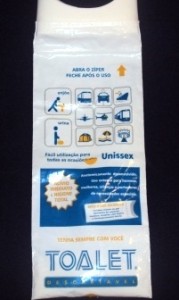
Photo © Michael Sommers.
Yesterday I was out in the center of Salvador and as I walked by all the boarded up buildings, I noted to myself that it looked as if a hurricane were coming. Then I remembered that next week is the beginning of Carnaval.
I can still vividly recall the experience of my first Brazilian street Carnaval. It was, to put it mildly, mind-blowing. I don’t think I’d ever been subjected to sensory overload on such an extravagant scale.
I’m talking all 5 senses being assaulted at the same time:
Sight: a psychedelic kaleidoscope of color, glitter, and bodies.
Sound: Music blasting SO loud that buildings literally vibrate.
Taste: Icy cold beer (after beer after beer)
Touch: Being hemmed in, groped, caressed, stroked, jostled and swept away by hundreds of thousands of sweaty, gyrating, samba-ing bodies.
Smell: Cheap perfume, barbecued meat (of unknown origin) on skewers, beer, and urine.
The only element listed above that Brazilians have even the most remote problem with is the urine. The problem being when it’s 40 degrees Celsius (100 degrees Fahrenheit) and you’re knocking back the watery beers in an effort to stay hydrated (and maintain the necessary Carnaval buzz), the urine tends to floweth over – and it tends to do so on sidewalks and against trees, cars, and buildings, forming not just rivulets, but small rivers.
In recent years, to curb the excess flow (and stench), municipalities have invested heavily in thousands of brightly-hued, chemical toilets. In theory, such an initiative is commendable. But in practice, after a few hours of collective madness and mayhem, that little alleyway around the corner looks (and smells) pretty good in comparison. Not to mention the fact that when you really have to go in the middle of Carnaval, it’s hard to summon up the control, let alone the patience, to stand in a 20-minute bathroom line-up.
Under Brazilian law, urinating in public is considered to be an “obscene act” that is punishable by a fine and even a jail sentence. Last year, the municipal Secretary of Public Order of Rio de Janeiro’s got serious about the odiferous issue of Carnaval “xixi” (Brazilian slang for “pee”, pronounced “she-she”). Not only did it unleash 4,000 chemical toilets onto the streets, but authorities rounded up and charged 360 public urinators – 19 of them women – with breaking the law.
This year, City Hall has gone even further: doubling the number of chemical toilets to 7,000 and dispatching 2,000 agents who will work in conjunction with civil police to crack down on those who persist in committing “atos obscenos”. Meanwhile, true to Brazilians’ subversive genius in finding creative ways of getting around rules and bureaucracy, (which, in itself, is a Carnavalesque trait), revelers will also have the choice of an alternative: the “Toalet Descartável” (i.e. Disposable Toilet).
Also known as the “banheiro de bolso” (“pocket bathroom”), the Toalet (which takes its name from the Portuguese pronunciation of “toilet”) consists of a handy little white plastic bag, the bottom of which is lined with antibacterial crystals derived from cellulose. Upon contact with urine, (or vomit – this invention doubles as a barf bag), not only do the crystals transform the fluid into an easy-to-dispose of gel, but they also camouflage up to 98 percent of any odor.
Launched in 2007, the disposable toilets are sold in some pharmacies and gas stations in Rio. And while police and Public Order agents have been instructed to “tolerate” their use during Carnaval – all that’s really required is a sarong-like canga to ensure privacy during the “act” – so far, revelers have two major complaints about these pocket potties:
1. They’re not very female friendly
2. They cost R$3.70 per bag – considerably more than a large can of icy beer.
While the makers claim that the fact the bags hold up to 600mL of liquid means they can be “re-used,” Carioca consumers don’t seem to be buying this argument – or too many Toaletes themselves for that matter.
Interestingly, if you’re not likely to encounter too many banheiros de bolso on the actual streets of Rio, you might have a better chance inside the taxis that shuttle revelers to and/or from the festivities. With all the increasingly endless traffic snarls faced by Carioca cab drivers (especially during Carnaval), a small but growing number of taxistas have actually embraced the Toaletes as a last resort for when they really have to go, but are stuck in a jam. Some have even started purchasing the bags for use by clients as well. In a recent interview, one Carioca cab driver confessed that after investing in Kleenex, condoms and hand sanitizer for his passengers, he now always has a stock of toaletes descartáveis on hand so that drunken clients won’t make a mess of his cab.